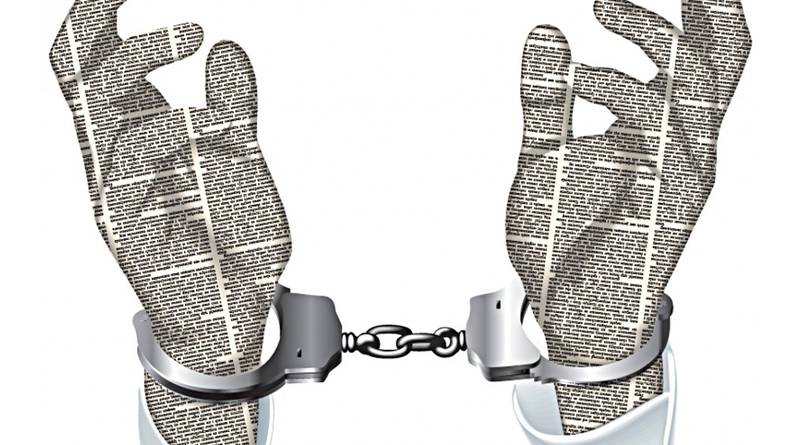
Prime Minister Imran Khan’s election in a vote that was judged free and fair, and the peaceful transition from Nawaz Sharif’s government, had raised hopes that Pakistan’s chronically fragile democracy was gaining strength, The Washington Post said in its editorial.
However, the US newspaper, talking about the increasing restrictions on media freedom in Pakistan, said President Donald Trump must raise the issue with his meeting with Imran. “It’s a subject Mr Trump ought to bring up.”
With an economic crisis roiling the country, intolerance to dissenting voices have grown, the WP said and added the Committee to Protect Journalists as saying, the decline in outright killings of journalists “masks [a] decline in press freedom”.
“In the past month alone, three television channels were taken off the air after broadcasting a live speech by opposition leader Maryam Nawaz. On July 11, the government terminated a Hum TV interview with Ms Nawaz just minutes after it began. The same thing happened when Geo News tried to broadcast an interview with former president Asif Ali Zardari on July 1,” the editorial read.
It noted that the crackdown escalated shortly after Imran took office. “In October 2018, just two months into his term, prominent Pakistani journalist Cyril Almeida was charged with treason after he published an interview with former prime minister Nawaz Sharif.”
“Meanwhile, the government slashed its advertising budget, depriving many media outlets of revenue they depend on and forcing the layoffs of hundreds of journalists.”
The newspaper said “Freedom of Expression is a beauty of Democracy. Expressing Enemy’s Stance is Not Freedom of speech but treason against its people,” read a tweet by the PTI on July 16. “That sort of rhetoric — the government has also called journalists “anti-state” — will only add chill to an already repressive atmosphere.
However, it said Trump’s repeated condemnations of US media don’t leave much hope that he will step up for free expression in Pakistan. But he or his aides ought to be pressing the subject with Imran.
“There’s not much chance that chronically fraught US-Pakistani relations can improve unless civilian-led democracy grows stronger in Islamabad. And for now, it is headed in the wrong direction.”
However, the US newspaper, talking about the increasing restrictions on media freedom in Pakistan, said President Donald Trump must raise the issue with his meeting with Imran. “It’s a subject Mr Trump ought to bring up.”
With an economic crisis roiling the country, intolerance to dissenting voices have grown, the WP said and added the Committee to Protect Journalists as saying, the decline in outright killings of journalists “masks [a] decline in press freedom”.
“In the past month alone, three television channels were taken off the air after broadcasting a live speech by opposition leader Maryam Nawaz. On July 11, the government terminated a Hum TV interview with Ms Nawaz just minutes after it began. The same thing happened when Geo News tried to broadcast an interview with former president Asif Ali Zardari on July 1,” the editorial read.
It noted that the crackdown escalated shortly after Imran took office. “In October 2018, just two months into his term, prominent Pakistani journalist Cyril Almeida was charged with treason after he published an interview with former prime minister Nawaz Sharif.”
“Meanwhile, the government slashed its advertising budget, depriving many media outlets of revenue they depend on and forcing the layoffs of hundreds of journalists.”
The newspaper said “Freedom of Expression is a beauty of Democracy. Expressing Enemy’s Stance is Not Freedom of speech but treason against its people,” read a tweet by the PTI on July 16. “That sort of rhetoric — the government has also called journalists “anti-state” — will only add chill to an already repressive atmosphere.
However, it said Trump’s repeated condemnations of US media don’t leave much hope that he will step up for free expression in Pakistan. But he or his aides ought to be pressing the subject with Imran.
“There’s not much chance that chronically fraught US-Pakistani relations can improve unless civilian-led democracy grows stronger in Islamabad. And for now, it is headed in the wrong direction.”
